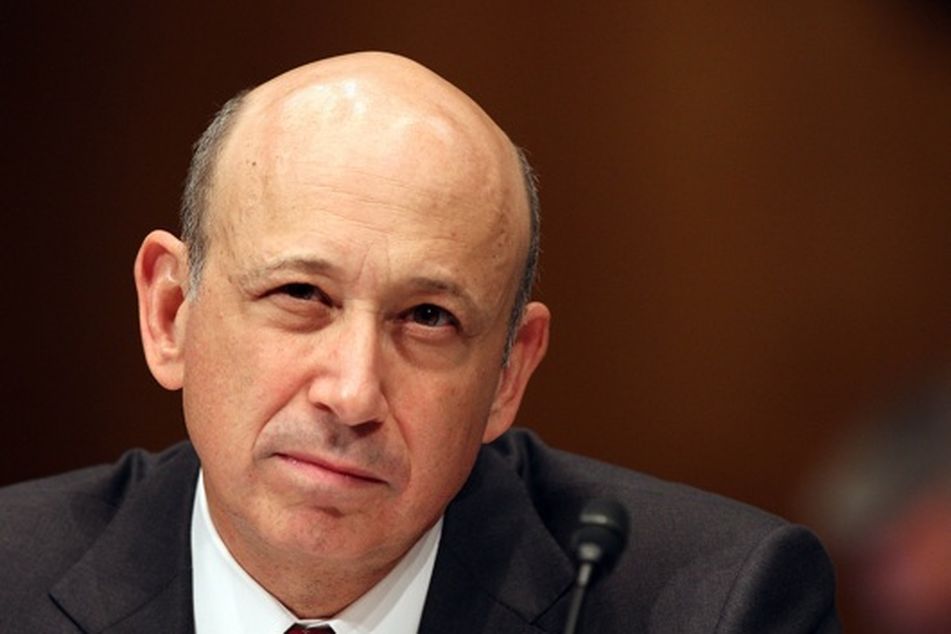<b>Incite:</b> Hey Lloyd, you should have explained why Goldman’s clients buy ‘crap’

What Lloyd Blankfein failed to tell Sen. Levin: Investors place bets on risky securities all the time. Why do they do this? Read the headline again.
Anyone listening to members of the Senate Permanent Subcommittee on Investigations drill representatives of Goldman Sachs Group Inc. last week had to wonder which of the two teams was the smart money.
It wasn’t so much that subcommittee Chairman Carl Levin, Democrat of Michigan, wouldn’t let go of the question on the appropriateness of Goldman betting against securities it was selling to clients; or that Goldman Chief Executive Lloyd Blankfein repeatedly failed to give the right answer, defined as the answer Levin wanted. What was remarkable was the failure of either party to the Q&A to convey an understanding of the market mechanism at the root of our economy.
Over and over Levin asked Blankfein how his firm could have sold “crap,” which is how Goldman employees described certain mortgage-linked securities, to investors. Goldman was short crap, hoping prices would fall.
One of the two gentlemen should have explained to the viewers at home that any assessment of the quality of a security — be it good, bad or crappy — “makes no sense without a reference to price,” said Jim Glassman, senior U.S. economist at JPMorgan Chase & Co.
Investors buy crap all the time. They purchase distressed debt, junk bonds, defaulted loans and foreclosed properties. They buy them at a discounted price that compensates them for the risk. They stand to lose little and win big.
Price is the mechanism through which savings are allocated to the most productive uses in a market economy. It’s the way consumers convey what goods and services they want to buy. It’s what prompts producers to hedge and speculators to speculate.
To his credit, Blankfein did mention that some investors are willing to buy securities for “pennies on the dollar,” hoping the price goes up. But that aside got lost in Levin’s attempts to get Blankfein to admit Goldman Sachs screwed up when it failed to disclose information connected with a synthetic collateralized debt obligation it created so hedge fund manager John Paulson could bet against the mortgage market.
Congressional inquisitors homed in on the lack of any “social purpose” in synthetic CDOs, complex instruments designed to wager on the mortgage market.
“In a market economy, if society desires something and people are willing to pay for it, it has social value,” Glassman said.
Value is in the eye of the beholder. For example, Glassman finds no redeeming social purpose in People Magazine, but some folks are willing to pay for the gossipy rag.
In retrospect — and these hearings on the financial crisis are nothing if not an exercise in 20/20 hindsight — if more speculators had sniffed out what hedge fund manager John Paulson did in the subprime mortgage market, the rates on those home loans would have been higher while housing demand and real estate prices would have been lower.
In other words, those “side bets” on real estate tanking that Congress is so up in arms about would have kept a lid on the bubble, said Cliff Asness, president of AQR Capital, a hedge fund in Greenwich, Connecticut, in an article posted on his website.
Most investors were lulled by the AAA rating Moody’s and Standard & Poor’s planted on many of these CDOs. They ended up with AAA-rated crap. The prices, in this case, didn’t reflect the quality of the securities because their structures were premised on the mistaken notion that housing prices never go down nationwide.
Until the subprime fiasco came along to completely humiliate the rating companies, speculators had made a good living for years betting against them. Two AA-rated securities don’t necessarily trade at the same yield. Some speculator who has done his homework knows there’s more to the AA than meets the eye. Enron Corp. carried an investment-grade rating days before it collapsed.
The Senate hearings aren’t merely about finding villains and assigning blame. There’s a prospective element to them as well: Congress is in the process of crafting new financial regulations. And what better way to convince the public government needs a heavier hand than hang Wall Street out to dry?
“Getting it right requires knowing what went wrong,” said George G. Kaufman, professor of economics and finance at Loyola University in Chicago, in a policy brief for the Heartland Institute, a free-market think tank based in Chicago.
There are currently two lines of thinking on what went wrong, dividing nicely along party lines. Cause No. 1: Capitalism failed. Cause No. 2. Government failed — by promoting homeownership for everyone and by neglecting its oversight role. You can match the party with the storyline.
Lawmakers should heed Kaufman’s advice. If they can’t agree on what went wrong, don’t understand the role prices play in a market economy and don’t see that their social values aren’t shared by everyone, what chance is there they will foresee the unintended consequences of the regulations they put in place?
(Caroline Baum, author of “Just What I Said,” is a Bloomberg News columnist. The opinions expressed are her own.)
Learn more about reprints and licensing for this article.








